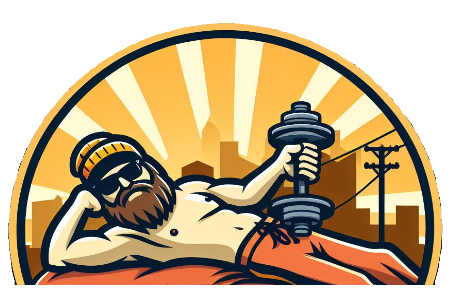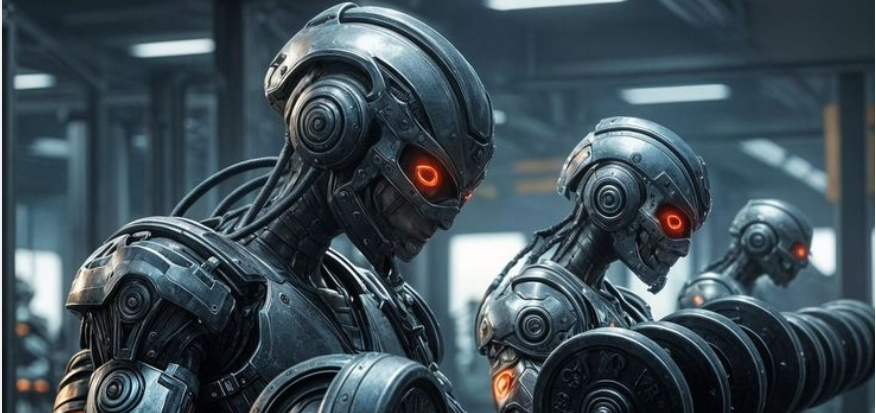How AI Can Help with Your Personal Health and Fitness Goals
In recent years, artificial intelligence (AI) has made its way into nearly every aspect of our lives—including personal health and fitness.
Whether you’re trying to eat better, move more, lose weight, gain muscle, or simply live a more balanced lifestyle, AI can be a powerful partner on your wellness journey.
From tracking calories to customizing workouts and even improving your sleep, AI-powered tools and apps are making health goals easier and more accessible than ever.
Let’s break down exactly how AI can support your personal health and fitness goals across three key areas: diet, exercise, and overall wellness.
AI and Dietary Goals
Eating well is one of the most important—and often most difficult—aspects of staying healthy. Fortunately, AI is changing the game when it comes to personalized nutrition.
One of the most practical uses of AI in diet management is meal planning. Apps like Fooducate, MyFitnessPal, and Lumen use machine learning to analyze your food preferences, allergies, goals (like weight loss or muscle gain), and even your metabolic rate to generate meal plans tailored just for you. These tools consider your calorie needs and macronutrient ratios (like protein, carbs, and fats) and offer suggestions based on your daily activity and progress.
Some AI-based food logging apps can even analyze a photo of your meal and estimate the calorie count and nutritional breakdown. This visual recognition technology saves time and improves accuracy, especially for people who find manual tracking tedious.
AI also helps in predicting blood sugar responses for certain meals. Apps like ZOE use microbiome data and machine learning to recommend foods that keep your blood sugar levels stable, which is especially helpful for people with diabetes or insulin resistance.
AI and Fitness Programs
Exercise is another area where AI shines. Whether you’re working out at home, in a gym, or outdoors, AI can help personalize your fitness routine to meet your specific goals.
Let’s start with virtual personal trainers. Apps like Freeletics, Fitbod, and Jefit use AI to create custom workout routines based on your fitness level, available equipment, recovery status, and progress over time. These apps learn from your feedback and adjust future workouts to match your needs and prevent plateaus.
For people who prefer live feedback, AI-powered motion tracking can now guide your form in real time. Some smart home gyms and apps, like Tempo or Peloton Guide, use cameras and sensors to monitor your movements and suggest corrections—just like a human coach would.
Even if you’re a runner or cyclist, AI can enhance your performance. Apps like Nike Run Club or Strava, paired with wearables, analyze your pace, heart rate, cadence, and route data to suggest better training techniques and rest days. These insights help prevent overtraining and injuries.
There are also AI fitness mirrors, such as the Mirror by Lululemon, which blend live classes with machine learning to offer feedback based on your performance during each session.
AI and Overall Wellness
Health is more than just diet and exercise—it’s also about mental well-being, sleep quality, stress levels, and daily habits. AI can play a surprisingly helpful role in these areas too.
Take mental wellness, for example. AI-powered chatbots like Wysa or Youper use natural language processing to help users track their emotions, manage anxiety, and practice cognitive behavioral therapy (CBT) techniques. While they don’t replace professional therapists, they provide accessible support for managing everyday stress and mental fatigue.
For better sleep, AI-enabled devices like Whoop and Oura Ring collect data on your heart rate, body temperature, and sleep cycles. These tools use AI to identify patterns and give you recommendations for optimal sleep timing, wind-down routines, and even when to work out for the best recovery.
AI can also help you build and maintain healthy habits. Platforms like Noom combine behavioral psychology with machine learning to offer personalized coaching. Based on your daily choices and responses, the AI adjusts the advice it gives and gently nudges you toward better habits, like drinking more water or reducing screen time before bed.
And for people juggling busy schedules, AI assistants like Google Fit, Apple Health, or Samsung Health can sync data from multiple apps and devices, giving you one cohesive overview of your wellness. These systems can send personalized reminders to move, hydrate, breathe deeply, or even just take a break.
Final Thoughts
AI isn’t just a tech trend—it’s becoming a practical, everyday tool for people looking to improve their health and fitness. By providing personalized support, real-time feedback, and long-term tracking, AI helps users stay consistent, motivated, and informed.
Whether you’re trying to eat healthier, train smarter, or sleep more soundly, there’s likely an AI-powered tool ready to help you do just that. The best part? You don’t need to be a tech expert to use these solutions. Most apps and devices are intuitive, easy to set up, and designed to grow with you as you progress.
So if you’ve been struggling to meet your health goals, it might be time to let AI give you a hand—or better yet, a smart assistant that sticks with you every step of the way.
Follow me on YouTube for more “health” insights.
Steve

Some links on this site may be affiliate links, and if you purchase something through these links, I will make a commission on them.
There will be no extra cost to you and, you could actually save money. Read our full affiliate disclosure here.

